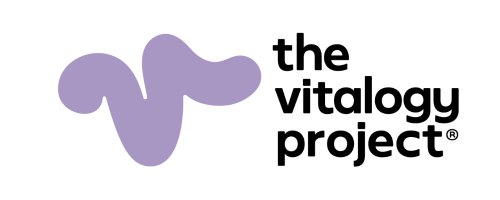The Power of Naps for Mental Energy

How Taking a Nap During the Day can Help with Mental Energy?
Taking a nap during the day has been a topic of debate for many years. While some people swear by its benefits, others consider it a waste of time. However, recent studies have shown that a short nap during the day can actually improve mental energy and productivity. In this article, I will explore the relationship between napping and mental energy, backed by scientific evidence.
What is Mental Energy?
Before delving into the effects of napping on mental energy, it is important to understand what mental energy is. Simply put, mental energy is the ability to focus, concentrate, and think clearly. It is what keeps us going throughout the day, allowing us to complete tasks and make decisions. Mental energy is essential for our overall well-being and is often linked to our productivity and success.
The Benefits of Napping
- Boost Alertness
- Improve Memory
- Reduce Stress and Improve Mood
Napping has been a part of human culture for centuries. In fact, in many cultures, it is considered a daily ritual. However, with the rise of technology and the fast-paced lifestyle, napping has become a luxury that many people cannot afford. But research has shown that napping can have numerous benefits, including improving mental energy.
1. Boost Alertness
One of the main reasons people take naps is to combat drowsiness and increase alertness. As we go about our day, our mental energy reserves start to deplete, leading to feelings of fatigue and drowsiness. A short nap of 20-30 minutes can help us feel refreshed and alert, allowing us to continue our day with renewed energy and focus.
2. Improve Memory
Studies have found that napping can also have a positive impact on our memory and learning abilities. A short nap can help consolidate information and improve our ability to retain and recall it. This can be especially beneficial for students who are studying for exams or professionals who need to consolidate information quickly.
3. Reduces Stress and Improves Mood
Chronic stress can have a significant impact on our mental energy levels. It can lead to burnout, fatigue, and an overall feeling of low energy. Taking a nap can help reduce stress levels and improve mood, leading to a boost in mental energy. It can also help regulate emotions and increase overall wellness.
Napping and Mental Energy
Now that we have established the benefits of napping, let's take a closer look at how it can specifically impact our mental energy levels. A study published in the Journal of Sleep Research found that a 15-minute nap can significantly improve mental performance and alertness for up to 3 hours after waking up. Another study conducted at the University of California found that a 60-90 minute nap was associated with a 10% improvement in cognitive performance.
The Power Nap vs. The Long Nap
When it comes to napping, duration is key. While a power nap of 20-30 minutes can have a positive impact on mental energy, a longer nap can have the opposite effect. Research has shown that a nap longer than 90 minutes can lead to sleep inertia, which is the feeling of grogginess and disorientation upon waking up. This can have a negative impact on mental energy levels and may take some time to wear off.
Tips for an Effective Nap
To reap the benefits of napping, it is important to do it right. Here are some tips for an effective nap.
- Find a quiet and comfortable place to nap, away from distractions
- Set a timer to ensure you don't oversleep
- Try to nap around the same time every day to establish a brain routine
- Avoid napping too close to your bedtime as it may affect your night time sleep(never after 4.00pm)
- If you have trouble falling asleep, try using relaxation techniques like deep breathing or listening to calming music or alpha sounds.
Conclusion
Napping can be a powerful tool for boosting mental energy and improving overall well-being. It can help combat drowsiness, improve memory and learning, reduce stress, and regulate emotions. However, it is important to keep in mind that napping should not be used as a substitute for a good night's sleep. It is meant to be a supplement to our daily routine to help us recharge and stay productive. So the next time you feel your mental energy dropping, don't hesitate to take a short nap and reap its benefits.
Author: Dr Stan Rodski, Chief Neuroscience Advisor at The Vitalogy Project, Cognitive Neuroscientist, Researcher and Author ( The Neuroscience of Excellent Sleep, Harper Collins, 2023).
Find out more Why Brain Health?
References
- Brooks, A., & Lack, L. (2006). A brief afternoon nap following nocturnal sleep restriction: which nap duration is most recuperative?. Sleep, 29(6), 831-840
- Gabel, V., Maire, M., Reichert, C. F., Chellappa, S. L., Schmidt, C., Hommes, V., ... & Cajochen, C. (2015). Effects of artificial dawn and morning blue light on daytime cognitive performance, well-being, cortisol and melatonin levels. Chronobiology international, 32(5), 627-638
- Hilditch, C. J. (2016). The effects of napping on cognitive functioning. Journal of sleep research, 25



